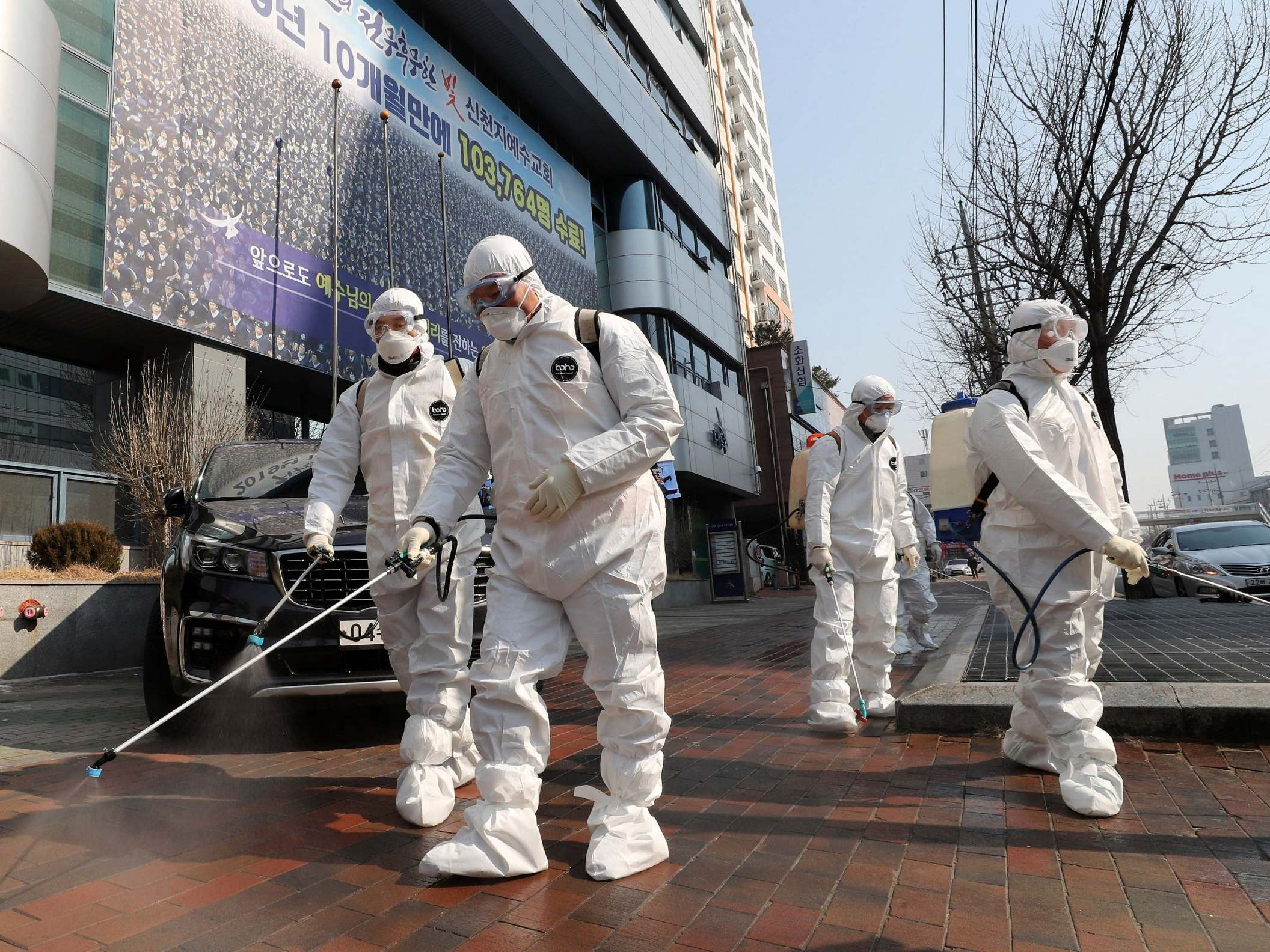Coronavirus: ‘Super-spreading’ at ‘cult’ church sees 2.5 million people told to stay indoors
Partial shutdown of 2.5 million-strong city leads to some of outbreak’s eeriest scenes outside of China

Your support helps us to tell the story
From reproductive rights to climate change to Big Tech, The Independent is on the ground when the story is developing. Whether it's investigating the financials of Elon Musk's pro-Trump PAC or producing our latest documentary, 'The A Word', which shines a light on the American women fighting for reproductive rights, we know how important it is to parse out the facts from the messaging.
At such a critical moment in US history, we need reporters on the ground. Your donation allows us to keep sending journalists to speak to both sides of the story.
The Independent is trusted by Americans across the entire political spectrum. And unlike many other quality news outlets, we choose not to lock Americans out of our reporting and analysis with paywalls. We believe quality journalism should be available to everyone, paid for by those who can afford it.
Your support makes all the difference.Scenes like that of a “zombie apocalypse” were seen in South Korea’s fourth largest city after nearly 40 people caught the coronavirus in a “super-spreading event” at a church.
There was sparse evidence of any of Daegu’s 2.5 million inhabitants on Thursday after the city’s mayor told them to stay indoors amid what he dubbed an “unprecedented crisis”.
Some 90 worshippers at a branch of the controversial “cult” Shincheonji Church of Jesus – attended by a 61-year-old woman known as “Patient 31” – began to show symptoms, with at least 37 testing positive for the virus.
The World Health Organisation’s director general insisted the number of South Korean cases remained “really manageable” but fears were stoked as Chinese government research suggested the virus is more contagious than Sars, albeit less deadly on a case-by-case basis.
It came as Japan confirmed the deaths of two citizens in their 80s who had caught the virus aboard the Diamond Princess cruise liner, which is quarantined near Yokohama.
Those infected on the ship account for more than half of all the cases recorded outside of mainland China, with at least 620 of the boat’s 3,700 passengers having tested positive.
The 70 Britons on the ship who tested negative are due to fly back to the UK from Tokyo on Friday.
They will be quarantined at the Wirral’s Arrowe Park Hospital for a fortnight, while those UK nationals who have contracted the virus will stay in Japan for treatment.
One couple from Northamptonshire, David and Sally Abel, said they were “both in the best place”, hours after being admitted to hospital in Japan.
UK health officials have now tested at least 5,549 people for the virus, the Department of Health said on Thursday. Nine have tested positive so far.
More than 75,000 cases of the virus – named covid-19 – have now been confirmed worldwide, with three-quarters of the 2,130 deaths occurring in Hubei province, the outbreak’s epicentre.
Chinese officials pointed to a seemingly dramatic decline in new cases as evidence that they are keeping the outbreak largely contained to Hubei, with fewer than 400 new cases reported on Thursday, compared to 1,749 the previous day.
While the WHO director general Tedros Adhanom Ghebreyesus said the UN health agency was “encouraged” by the trend, experts attributed much of the reduction in new Chinese cases to a change in the way that Hubei province reports cases.
While epidemiologists said adjusting methodology could help ensure optimum use of resources, it can have a drastic effect on the reporting of new cases.
Only last week, another change in Chinese methodology created an overnight rise of nearly 15,000 new cases, reversing a trend of falling numbers.
“It’s important that authorities do not interpret this as a slowing of the outbreak and let their guard down prematurely,” said Bharat Pankhania, of the University of Exeter.
Mr Ghebreyesus added “this is no time for complacency” and warned that while cases outside of mainland China remain comparatively low, “that may not stay the same for very long”.
He also announced that preliminary results from two clinical trials of a possible treatment for the virus were expected in three weeks.
Meanwhile, the International Monetary Fund chief warned the outbreak was the “most pressing uncertainty” facing the global economy.
Additional reporting by agencies
Join our commenting forum
Join thought-provoking conversations, follow other Independent readers and see their replies
Comments